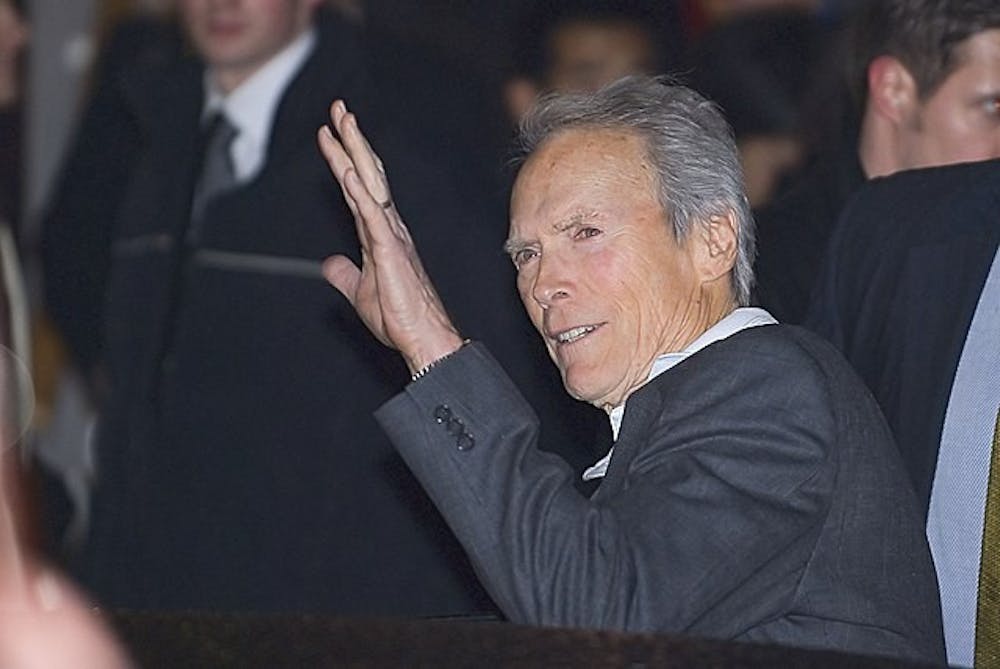Last week, the most culturally significant American film genre saw a new addition from a Hollywood legend. Clint Eastwood returned to the western genre to direct and star in “Cry Macho,” available in theaters and to stream on HBO Max. Based on a novel of the same name, the film follows an old broken rodeo star on a mission to retrieve a young teen from his abusive mother in Mexico.
Over the journey back home, Mike — played by Eastwood — finds purpose in his newfound friendship with Rafo — played by Eduardo Minett. The film abandons action typical for a western for a more heartfelt roadtrip across Mexico where dangerous goons sent by the mother have to be avoided along the way.
“Cry Macho” — despite coming from a veteran director and actor — fails to impress. For one, Eastwood is poorly cast in his own film. He is 91 years old, and the script fails to fully embrace his age in an interesting way. Being an older actor in a western can open up unique possibilities for the genre by adding interesting dynamics that a younger actor can’t embrace. However, neither the script nor Eastwood embrace his age, leaving him unable to add a distinct presence that he used to display in past films.
At one point, Mike gets into a scuffle with Rafo that leaves Rafo admiring Mike’s speed. It is a clear moment of asserting Mike’s cowboy dominance, even in his old age. However, there is a serious dissonance between the script and what the viewer sees because Eastwood did not move fast in any manner. At 91, he poses no threat to a teenager from the streets of Mexico, but the script was written to privilege Eastwood in an unrealistic way. The script also lacks subtlety and nuance throughout the film.
Due to a weak script, the story has no forward thrust. Events simply happen to the characters rather than the narrative moving and changing with them. Mike and Rafo get their car stolen at one point in the middle of the desert, and the film ignores that a car approaching the two could easily be heard from miles away. The car just appears next to theirs without making much noise.
This plot hole could have been easily fixed if the two were just farther away from their car, leading them to rush back under the suspicion of criminals approaching in the Mexican desert. The film could have engaged much more with the actors, Eastwood’s age and the current desperate situation in the film if more thought had been put into the flow of the narrative. Here is one of many examples of how the script trips over its own laziness and fails to capitalize on what could be a much more dramatic story.
A severe issue comes from Eduardo Minett, who needs to make serious improvements as an actor. While performances from young actors should be given some slack, his performance is incredibly awkward with overexaggerated facial expressions and horrible line delivery. This would not be a major detriment to the film if his role was a minor one, but he is present for a majority of the runtime. The film hinges on the relationship between Mike and Rafo, but falters beyond Minett’s performance on a more fundamental level because the dynamic of a grizzled old man and a young boy from a different walk of life was already executed better in Eastwood’s “Gran Torino.”
In terms of the film’s technical qualities, it is passable. Eastwood is still a competent director even for his worst films, of which “Cry Macho” is one. The film was clearly made with care and showed no signs of being sloppy. A disappointing element of the film is the cinematography due to how little it captures the beauty of the outdoors in the manner that the western genre is known for. The score also fails to live up to the high standards of the genre, having no memorable presence in the film, but it is still acceptable.
One truly positive element of this film is that it expresses the love Eastwood still has for filmmaking. Even at 91, Eastwood still rides horses and acts to the best of his ability even when his voice is breaking. Some will find this film endearing because of that, but the film will likely not be an engaging experience for those who are not die-hard Clint Eastwood fans wanting to see the legendary cowboy at the end of his career. For the majority of filmgoers, “Cry Macho” should be skipped in favor of watching a classic instead.







